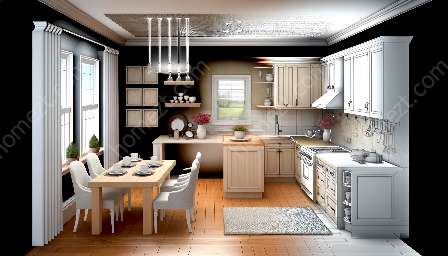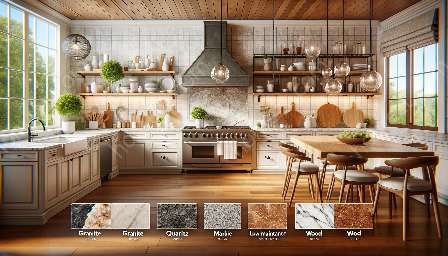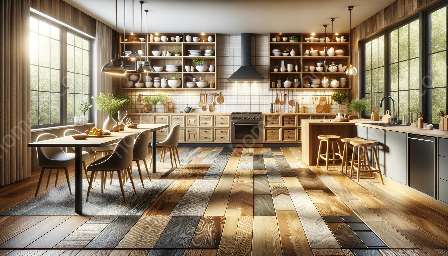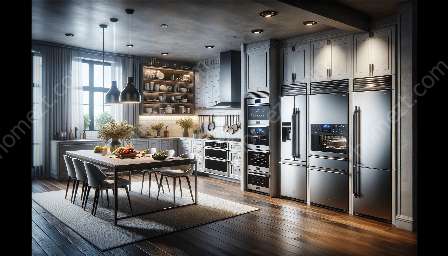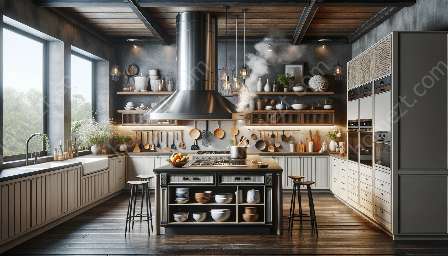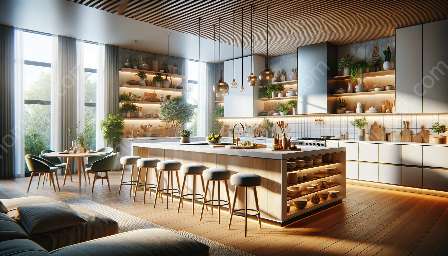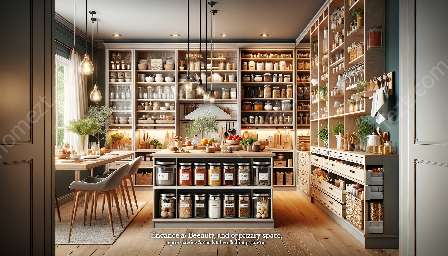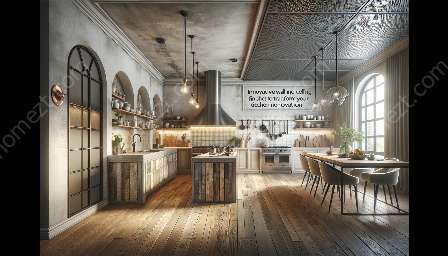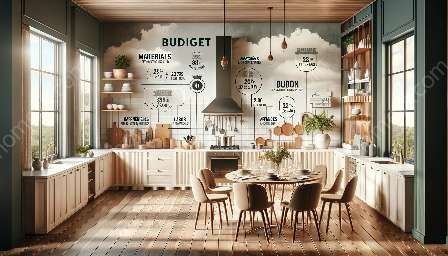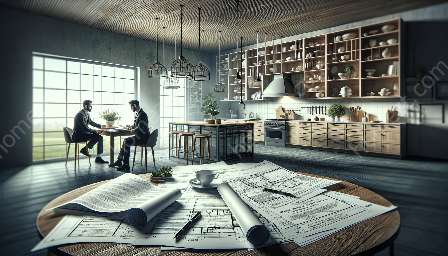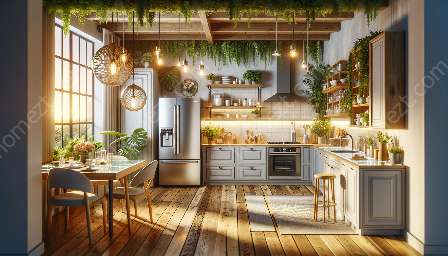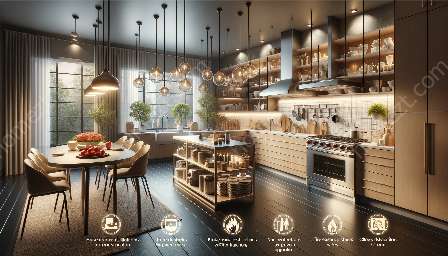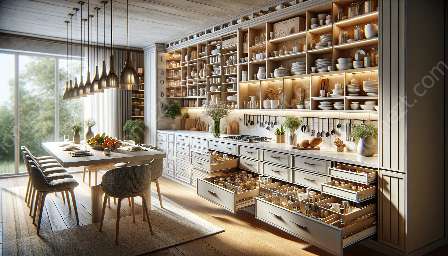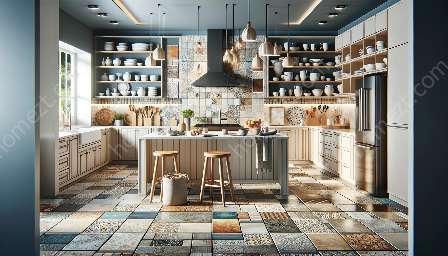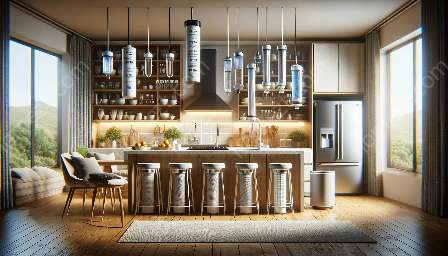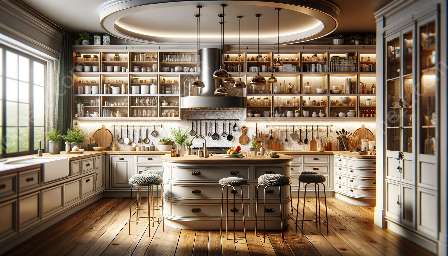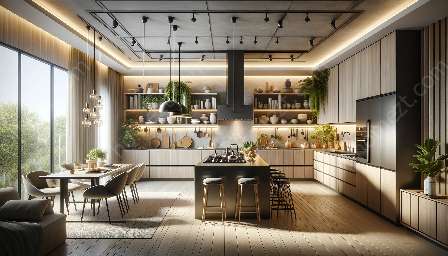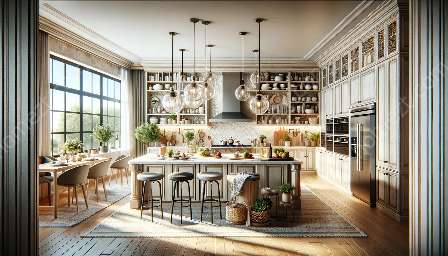Are you considering a kitchen renovation and looking for ways to create a more energy-efficient space? With the growing focus on sustainability and environmental impact, many homeowners are seeking ways to make their kitchens more eco-friendly while also saving money on energy bills. In this comprehensive guide, we will explore various energy-efficient solutions that are compatible with kitchen renovation and are also suitable for the kitchen and dining area.
The Importance of Energy-Efficient Solutions in Kitchen Renovation
As the heart of the home, the kitchen is a space where energy consumption is often high. From lighting and appliances to heating and cooling, there are numerous opportunities to improve energy efficiency and reduce wastage. Energy-efficient solutions not only help lower utility costs but also contribute to a more sustainable and environmentally friendly household.
Energy-Efficient Appliances
One of the primary areas to focus on when renovating your kitchen is the selection of energy-efficient appliances. From refrigerators and dishwashers to ovens and cooktops, modern appliances come with energy-saving features and certifications that can significantly reduce your energy consumption. Look for appliances with ENERGY STAR ratings, which indicate that they meet specific energy efficiency standards set by the Environmental Protection Agency (EPA).
LED Lighting
Lighting plays a crucial role in any kitchen, both practically and aesthetically. By choosing energy-efficient LED lighting solutions, you can illuminate your space while consuming significantly less energy compared to traditional incandescent or fluorescent bulbs. LED lights are long-lasting and come in a variety of color temperatures and designs, making them a versatile choice for kitchen renovations.
Sustainable Materials and Finishes
When updating the kitchen's cabinetry, countertops, and flooring, consider using sustainable and eco-friendly materials. Bamboo, reclaimed wood, and recycled glass are popular choices for kitchen renovations due to their durability and low environmental impact. Additionally, look for low-VOC (volatile organic compound) paints and finishes to minimize indoor air pollution during and after the renovation process.
Energy-Efficient HVAC Systems
Heating, ventilation, and air conditioning (HVAC) systems are significant contributors to energy consumption in any home, including the kitchen area. Upgrading to an energy-efficient HVAC system can result in substantial energy savings and improved indoor air quality. Consider installing programmable thermostats, high-efficiency air filters, and proper insulation to create a more energy-efficient and comfortable kitchen environment.
Creating an Eco-Friendly Kitchen and Dining Area
Beyond the specific energy-efficient solutions for kitchen renovation, there are additional ways to embrace sustainability and eco-friendliness in the kitchen and dining space.
Waste Management and Recycling
Integrating effective waste management and recycling systems into your kitchen renovation can significantly reduce the environmental impact of your household. Designate separate bins for recyclables, compostables, and general waste to encourage proper disposal and minimize landfill contributions.
Water-Saving Fixtures
Conserving water is another essential aspect of creating an eco-friendly kitchen. Install water-saving faucets, low-flow aerators, and energy-efficient dishwashers to reduce water consumption without compromising functionality. These fixtures not only save water but also lower your utility bills over time.
Indoor Plants and Natural Elements
Bringing elements of nature into your kitchen and dining area can enhance the overall eco-friendly ambiance. Consider adding indoor plants that help improve air quality and bring a touch of natural beauty to the space. Additionally, incorporate sustainable and natural materials, such as wood, stone, and clay, in your kitchen decor to promote a more organic and environmentally conscious atmosphere.
Conclusion
By incorporating energy-efficient solutions into your kitchen renovation and embracing sustainable practices in the kitchen and dining area, you can create a more eco-friendly and cost-effective living space. Not only will these measures reduce your environmental footprint, but they will also contribute to a healthier and more comfortable home for you and your family. Whether you are embarking on a full kitchen renovation or simply looking to make small changes, prioritizing energy efficiency and sustainability can lead to long-term benefits for both your household budget and the planet.


